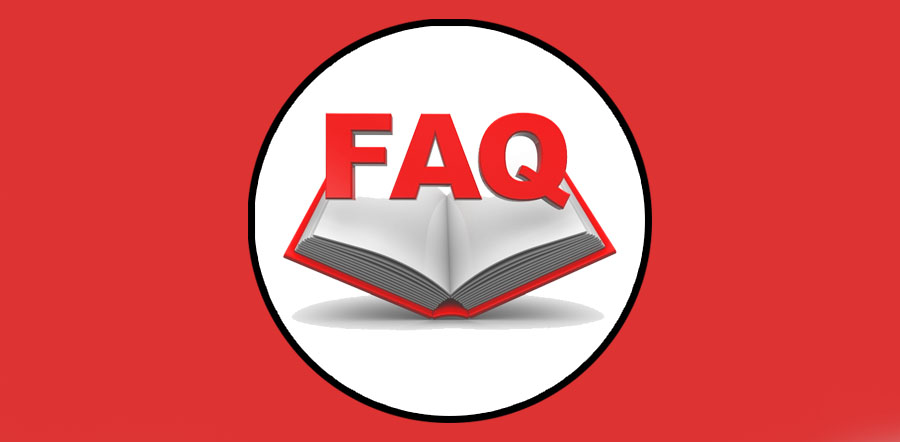CBAF-001
Guaranteed Success in CBAF-001 Exam
“The CBAF-001 practice test is something that You’re looking for a very long time is here !”
Pass your GAQM CBAF-001 Exam with the Latest QuizDumps CBAF-001 PDF Questions and Answers. QuizDumps provides [Authentic , Updated and Real] CBAF-001 Braindumps that are prepared and verified by IT experts. If you want to get high marks then start your preparation now with QuizDumps Study Material.
1: Download Q&A PDF
You can easily download the CBAF-001 Questions Answers PDF file for the preparation of Certified Business Analyst Foundation (CBAF) Exam and it is especially designed for GAQM CBAF-001 exam and QuizDumps prepared a list of questions that would be asked in the real CBAF-001 exam.
2: Prepare Questions Answers
Use QuizDumps's CBAF-001 exam dumps PDF and prepare Certified Business Analyst Foundation (CBAF) Exam CBAF-001 Questions Answers with 100% confidently. We offer 100% real, updated and verified exam questions and answers tested and prepared by experts to pass GAQM CBAF-001 exam.
3: Pass Your Exam
After your preparation for Certified Business Analyst Foundation (CBAF) Exam CBAF-001 exam by using QuizDumps's exam material kit you will be ready to attempt all the CBAF-001 questions confidently which will make 100% guaranteed your success in the first attempt with really good grades.
-
LEED-AP-ND
LEED Certifications
Updated: 2024-11-19 100 Questions -
PCCSE
Prisma Certified Cloud Security Engineer
Updated: 2023-02-06 260 Questions -
300-735
CCNP Security
Updated: 2020-11-18 60 Questions -
APM-001
Associate in Project Management
Updated: 2019-12-17 704 Questions -
PGCES-02
PostgreSQL Certified Engineer
Updated: 2017-12-14 142 Questions -
2V0-72.22
VMware Certified Professional
Updated: 2022-03-14 79 Questions -
CPEH-001
GAQM Certified Ethical Hacker
Updated: 2021-11-11 877 Questions -
DEX-450
Platform Developer I
Updated: 2023-02-10 200 Questions
Main points of GAQM CBAF-001 Test
The GAQM Certified Business Analysis Professional (CBAP)® exam (CBAF-001 is an older code, the current code is likely different but refers to the same exam) focuses on the knowledge and skills required to be a successful business analyst. The main points covered fall under six domains:
1. Strategy Analysis: This section covers understanding organizational strategy and goals, aligning business analysis activities with strategic objectives, and contributing to strategic planning. Key concepts include:
- Strategic planning processes: Understanding how organizations set goals and define strategies.
- Stakeholder analysis: Identifying and analyzing stakeholders' needs and interests.
- Business case development: Justifying projects based on their value and feasibility.
- Risk management in strategic planning: Identifying and mitigating risks to strategic objectives
2. Requirements Elicitation and Collaboration: This domain emphasizes gathering information from various stakeholders and then turning that into structured requirements. Key concepts include:
- Requirement elicitation techniques: Using various methods (interviews, workshops, surveys, document analysis) to gather requirements.
- Stakeholder management: Effectively managing expectations and communication with stakeholders.
- Collaboration and communication: Working effectively with diverse teams and individuals.
- Conflict resolution: Addressing disagreements and conflicts among stakeholders.
3. Requirements Modeling and Documentation: This section covers transforming collected information into understandable and useful models and documentation. Key concepts include:
- Creating business process models: Visual representation of business processes.
- Data modeling: Understanding and representing data structures.
- Use case modeling: Describing user interactions with the system.
- Requirements specifications: Writing clear, concise, and unambiguous requirements documents.
- Various modeling notations: UML, BPMN, etc.
4. Solution Evaluation and Recommendation: This section focuses on evaluating potential solutions and recommending the best approach. Key concepts include:
- Solution assessment: Evaluating the feasibility and effectiveness of different solutions.
- Cost-benefit analysis: Analyzing the costs and benefits of different solutions.
- Risk assessment: Identifying and assessing potential risks associated with different solutions.
- Recommendation justification: Providing clear and well-justified recommendations.
5. Solution Implementation and Monitoring: This area covers the implementation phase and ongoing monitoring. Key concepts include:
- Implementation planning: Developing and executing a plan for implementing the solution.
- Testing and validation: Ensuring that the solution meets the requirements.
- Change management: Managing the transition to the new solution.
- Monitoring and evaluation: Tracking the performance of the solution and making adjustments as needed.
6. Governance and Professionalism: This aspect emphasizes ethical conduct and adherence to standards. Key concepts include:
- Professional ethics: Adhering to professional codes of conduct.
- Project governance: Following established project management processes.
- Compliance: Meeting regulatory requirements.
- Continuous improvement: Continuously improving skills and knowledge.
The exam tests your understanding of these concepts through a mix of multiple-choice, fill-in-the-blank, and scenario-based questions. Success requires a strong foundation in business analysis principles, techniques, and best practices. Remember to refer to the official GAQM CBAP exam guide for the most up-to-date details.
Comments

